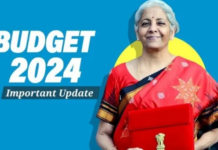
The second edition of InnoEX hosted the keynote Association of Southeast Asian Nations (ASEAN) Roundtable on its first day. At the Roundtable, government and business discussed how rapidly urbanizing Southeast Asian countries could digitalise to transform their urban centres into smart cities.
A wealth of insightful speeches delivered by key industry players and government bodies from ASEAN countries, Hong Kong and Mainland China showed how ASEAN nations’ resolute determination to create smart cities, for the benefits of enhancing citizens’ quality of life, achieving sustainability and the ‘go green’ principle and building smart cities to be havens of safety.
The Roundtable was a key conference in the four-day InnoEX, co-organised by the Innovation, Technology and Industry Bureau of the Hong Kong SAR Government and the Hong Kong Trade Development Council (HKTDC). Government and business representatives discussed smart-city development needs, promoting government-to-government (G2G) and government-to-business (G2B) cooperation.
Smart-city hub
Moderating the G2G session, Irina Fan Director of Research at the HKTDC, pointed out that six of the world’s smartest cities were in East Asia. New technologies empowered governments to develop smart cities.
Under Secretary for Innovation, Technology and Industry for the Hong Kong SAR Government Lillian Cheong said the cumulative gross domestic product of ASEAN countries was US$3.6 trillion in 2022 more than double from 2009. The region was young, energetic and aspiring
Innovation and technology (I&T) tops policy agendas among governments in the region, Ms Cheong said. For its part, the Hong Kong SAR Government aims to digitalise all services by the middle of this year. The Government will drive all departments to use the “iAM Smart” mobile app for easy digital access to government services by the citizens. The government has also just announced that it will launch a Digital Policy Office to formulate policies on consolidating IT resources within Government to coordinate departments to offer more services.
Representatives of several ASEAN countries said they had been engaging with Hong Kong in their efforts to rapidly move forward with smart-city developments, in many cases breaking ground on all-new centres.
New capital for Indonesia
Indonesia is moving its capital from Jakarta to an all-new city on Borneo Island, Nusantara. Green and Digital Transformation, Nusantara National Capital Authority Chief of Project Officer Smart City Daniel Oscar Baskoro said the new capital would concentrate on sustainability, inclusivity and smart development.
He invited stakeholders from the public and private sectors, especially those in the ASEAN community and Hong Kong’s private sector, to take part in the project.
He believed that attending the InnoEX roundtable was important in identifying technologies suitable for our new capital, establish contacts, networks and relations to encourage investment and development.
“From the roundtable, we understood that Nusantara and Hong Kong have a similar line of story and conditions.
“We are drawn to Hong Kong for its advanced regulatory processes, private sector practices and logistical efficiency – these are what we see potential in collaboration.”
Three decades of smart city
Another new city that has sprung up in the region is Putrajaya, the technology and innovation centre south of the capital Kuala Lumpur.
Datuk Dr Alias Bin Rameli, Director General Department of Town and Country Planning (PLANMalaysia), Ministry of Housing and Local Government, said that since the establishment of Putrajaya in 1995, Malaysia had been transforming into a smart nation.
Their framework identifies seven key components – smart government, smart economy, smart people, smart living, smart mobility, smart environment, and smart digital infrastructure.
“The goal is to enhance the quality of life for our people at both the national and local levels,” Dr Alias Bin Rameli said.
“Networking is the first step in fostering collaboration. At InnoEX, we have engaged with partners and government officials from ASEAN countries, Hong Kong, and Mainland China. Just this morning, we have already visited booths that provide products and solutions with great potential.
“We will continue to seek solutions that suit our smart city agenda.”
Cooperatively building Digital Valley
In Thailand one of the new smart-city developments underway is the Thailand Digital Valley east of the capital Bangkok which the country aims to develop into a regional digital hub.
Dr Chinawut Chinaprayoon, Executive Vice President, Digital Economy Promotion Agency (DEPA), Ministry of Digital Economy and Society of Thailand, said the primary
objective of DEPA in joining InnoEX was to broaden opportunities to partner in innovative developments between Hong Kong and Thailand.
“InnoEX serves as a platform for sharing knowledge, experience, and discovering new connections for business matching.”
Smart city development in Thailand focused on making cities smarter and more livable for residents.
“Thailand is positioning itself as a springboard, allowing for expansion into the growing market of the Southeast Asia region.”
The underlying technological focus of Hong Kong and Thailand remained similar. Both focus on AI and Web 3 applications.
“While Hong Kong excels in using technology to enhance data services, including fintech, Thailand also emphases leveraging technology to improve city services. Therefore, our collaboration can significantly benefit digital transformation in these key areas.”
Communication based
Ivan John E Uy, Secretary, Department of Information and Communications Technology
(DICT), Philippines said the department drives smart city development through several initiatives. With communication at the core of smart cities, these include the National Broadband Plan, National Fiber Backbone, and Free Wi-Fi for All.
The country’s eGovPH App promotes contactless, cashless, and paperless transactions. The Philippine National Cybersecurity Plan ensures cyber-threat defense. A survey of local government units highlights progress in smart city development, showing that 70% are planning, 61% in progress and 56% have supportive policies.
Rapid urbanisation
Laos borders China and four ASEAN peers – Cambodia, Myanmar, Thailand and Vietnam. With a population of 7.5 million the country is 37% urbanised, concentrated in the capital Vientiane and a number of key secondary cities.
Dr Viengnam Douangphachanh of the Ministry of Public Works and Transport, Housing & Urban Planning Department of Laos, said rapid urbanisation and climate change were impacting the population.
Laos is among the fastest urbanising countries in region, and expects 50% of the population will be city dwellers by 2030, a significant increase.
Rapid growth of cities came with standard problems including urban sprawl, traffic congestion and fire hazards. Laotian authorities focused on master planning to overcome the challenges.
A National Urban Development Strategy 2030 was drawn up for all towns nationwide. Streamline regs.
Dr Douangphachanh said challenges that ASEAN peers, Mainland China and Hong Kong could help with included a shortage of staff qualified to drive the transformation, and a lack of capital to finance developments.
Just as information and data sharing are essential to smart-cities, so the delegates at the Roundtable found the discussions and the products and services on offer at InnoEX essential in driving urban digitalization forward.
——————————————————————————————————————–
Roundtable participants identified innovative solutions holding potential for their smart city development plans
Dr. Krithpaka Boonfueng, National Innovation Agency, Executive Director, Ministry of Higher Education, Science, Research and Innovation (Thailand) (Speaker at the Roundtable)
The National Innovation Agency (NIA) is a public organisation aiming to support the SMEs, social enterprise and startups in the area of innovation in Thailand. By providing support for the development of innovation and smart living, its focus is to create a sustainable and inclusive city via different innovation technology solutions.
To transform into a Smart City, the NIA believes that the pain point will be the mindset of the people in this global aging society. There is a digital gap between people of different generations which hinders the Smart City transformation process. This year marks the first appearance of a Thai startup at InnoEX. The Fintech, Healthtech and Foodtech represented at InnoEX interested NIA the most. Participating in InnoEX facilitated the project and startup collaborations between Thailand and Hong Kong. NIA has established a partnership with HKTDC and planned to have further collaboration with Cyberport and HKSTP for mutual boost startup promotion and might consider signing MOU in the future to formalize these cooperative relationships.
Mr Mohd Faizalnizam Bin Md Azin, Deputy Director, Johor Town and Country Planning Department (PLANMalaysia Johor), Malaysia (Observer at the Roundtable)
Mr Faizalnizam was grateful for this opportunity to view and experience these innovative technologies from global exhibitors under one roof in person. He expressed particular interest in the Intelligent Mobility Platform for Security Patrolling as part of Smart Living
initiatives in Johor Smart City Blueprint 2030 and the exhibitor planned to make a trip to Malaysia to meet Mr Faizalnizam to further discuss regarding the event of Johor Smart City Day 2024 / Johor Smart City Forum 2025 and will tailor respective IoT robotic solutions on demand.
Ms Syazlina Binti Bahari, Director, Perak Town and Country Planning Department (PLANMalaysia Perak), Malaysia (Observer at the Roundtable)
Ms Syazlina expressed deep appreciation for our invitation and learnt a lot from the ASEAN Roundtable. She also identified 3 relevant solutions and would propose them in the smart city action plan.
1. With the increasing awareness of biodiversity to maintain and balance the ecosystem, she would propose the country to utilise this scientific ecological big data platform as a key monitoring tool.
2. One of InnoEX exhibitors delivered highly complex and challenging multidisciplinary rail projects all over the world, including the Autonomous Rapid Transit System in Sarawak, Malaysia. This is an opportunity to incorporate in fifth review of National Physical Plan.
3. . She was interested in an innovative robotic system, specifically designed for navigating and inspecting challenging effluent tunnels, which could be a replacement of site workers and to minimise risk.

























